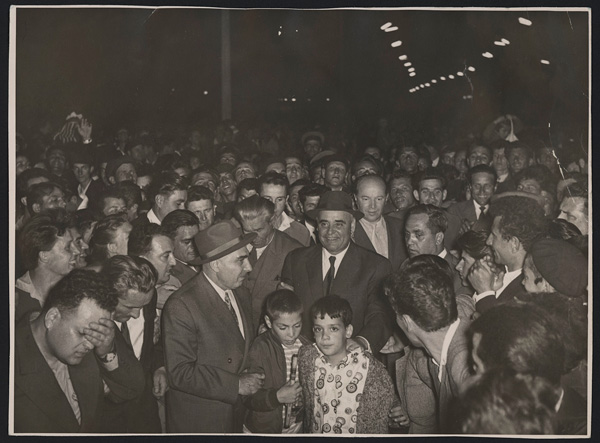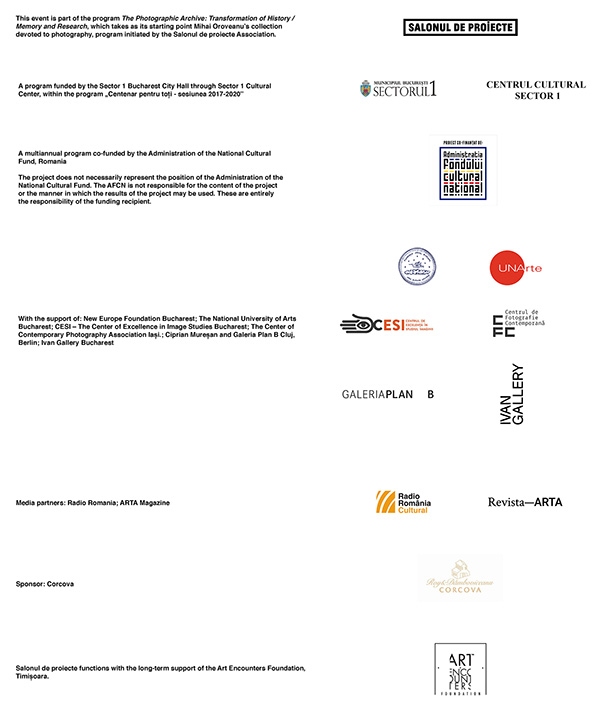TUKHĒ: THE PHOTOGRAPHIC ARCHIVE, THE CULT OF PERSONALITY, AND THE LIMITS OF POST-MEMORY
25.06.2019, 19.00
A presentation by Mihai Lukács
Salonul de proiecte invites you to the second public lecture inspired by the Image Collection of Mihai Oroveanu.
Georgi Plekhanov’s study The Role of the Personality in History (1898) laid the foundations for the criticism of the cult of personality in the socialist world, attacking head-on the populist opinion that it is heroic individuals who forge history. The lecture sets out from the premise that the representation of events from the past can function, in a Brechtian way, as a tool for understanding current situations by means of the distancing brought by historicisation and the passage of time. The examination of stories from the forgotten past (the 1950s) causes us to become aware of our own historical conditioning and to act accordingly. It is not easy to draw the boundary between a mythologised past, with its heroes and monsters, and the “real” past, and the photographic archive does not seem to be of much help, but such a separation can give rise to fertile discussion, particularly in regard to policies of (post-)memory.
The images that speak to us of the cult of personality do not promise us that they will stop time. On the contrary, by their very familiarity they show us the limits of the construct of a linear history that produces continuous narratives. Tukhē, the accident of subjectivity or the particular occasion for a photograph, is the remainder that eludes Plekhanov and which might predict the course of history. Historical figures, be it Gheorghe Gheorghiu-Dej, Ana Pauker or the young Ceaușescu, are conscious of their historical rôles. Through photography, they are captured not as objects or subjects, but rather as subjects transformed into objects. They thereby experience a micro-version of their own deaths and look forward to their status as ghosts destined to haunt us.
The post-memory of the 1950s is connected to the past not through memory but through an imaginative investigation, through projection. We live with those dominant memories, with those memories of tragic events that took place before we were born. They risk replacing our own memories of the events we actually experience, memories that seem pale and flimsy by comparison. This trans-generational return of the embodied knowledge and experience can take place via an alchemical medium: photography, the sole mediator of death, the politically charged objet on which depends desire.
Mihai Lukács (b. 1980) is a theatre director, researcher, artist, and theorist. Lukács was awarded a Doctorate in Comparative Gender Studies by the Central European University in Budapest for his thesis on the male hysteria of modernist theatre directors Stanislavsky, Meyehold and Artaud. His most recent performative practices speak of local counter-history and affective archival research, the relationship between the Roma and gadgies, public humiliation, sexual liberation, faith and exclusion, eviction and homelessness and inequality, resistance, and intersubjectivity in general.





